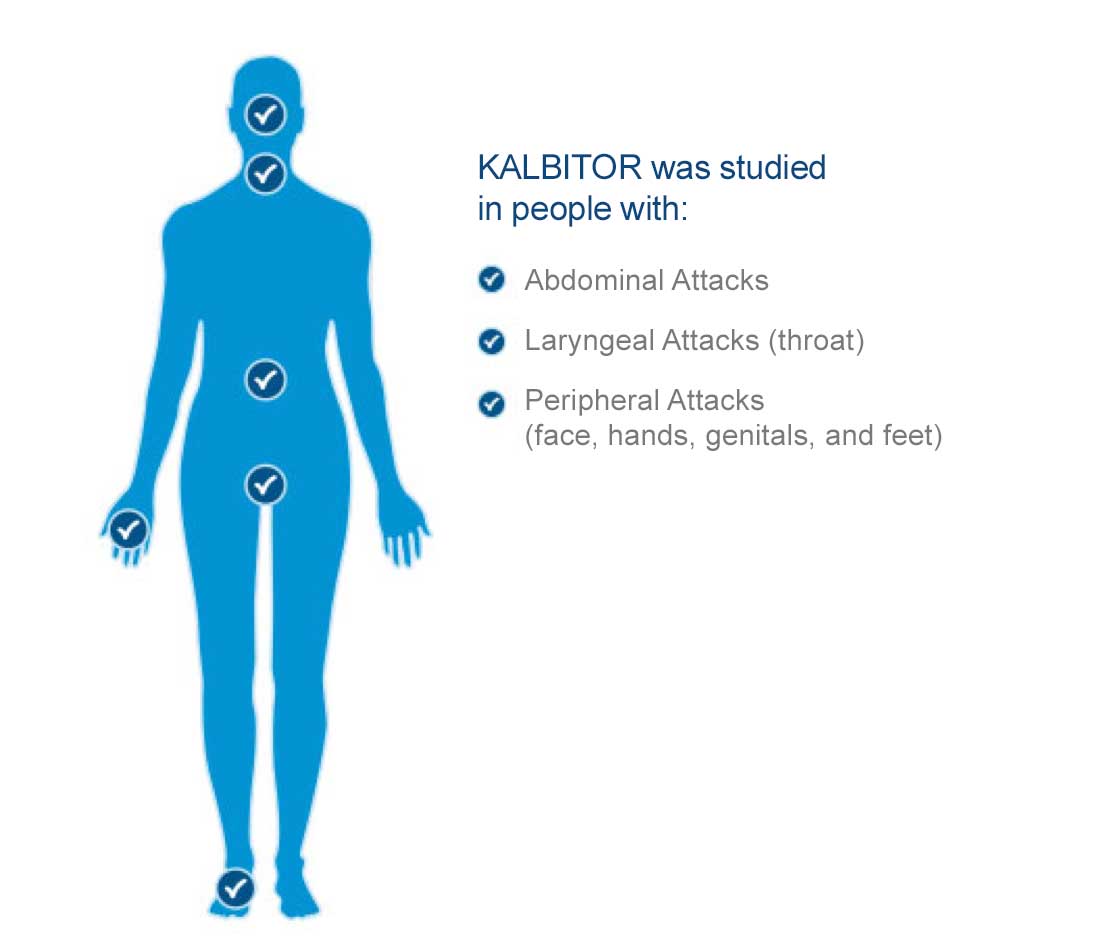Other Treatment Options
Symptoms and Diagnosis
Hereditary angioedema (HAE) attacks typically happen in three main places in the body:

Attacks usually affect just one part of the body, such as swelling only in the hand. But it's not uncommon for more than one part of the body to be affected during a single attack, such as swelling in the hand as well as in the abdomen.
Swelling in the throat is considered to be the most dangerous and can even block a person's breathing. 50% of all people with HAE are expected to experience a throat attack in their lifetime.
KALBITOR (ecallantide) is the first under the skin (subcutaneous) treatment approved for attacks of hereditary angioedema (HAE) in patients 12 years of age and older. KALBITOR is not a cure for HAE.
KALBITOR is approved to treat attacks in all locations — including the face, hands, feet, genitals, abdomen and throat. Learn more about how KALBITOR works.
Talk to Your Doctor to Be Prepared
Although there is no known cure for hereditary angioedema (HAE), you do have treatment options. Experts recommend that all people with HAE have an on-demand therapy as a part of their treatment plan and are evaluated for long-term preventive treatment at every doctor's visit, or at least once a year. Work together with your doctor to develop a treatment plan that's right for you.
If You Think You Have HAE, You May Want to Ask Your Doctor:
- How is HAE diagnosed?
- Can HAE be mistaken for other conditions?
- Could I have inherited HAE from my parents?
- How is HAE treated?
If You Have Been Diagnosed with HAE, You May Want to Ask Your Doctor:
- What treatments are available for HAE?
- What are the side effects of these treatments?
- How effective are these treatments?
- What should I do if an HAE attack affects my breathing?
- If I'm going to travel, what plans should I make?
- Will I pass HAE on to my children?
- Am I a candidate for acute or preventive treatment?
Ask your doctor if KALBITOR (ecallantide) is right for you. Read some common questions about KALBITOR.


